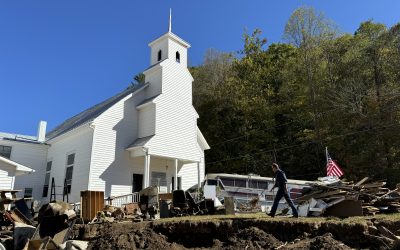Washington, D.C. — Today, Senator Ted Budd (R-NC) introduced S. 2675, the Backcountry Aviation Protection Act.
The bill requires the Federal Aviation Administration (FAA) to add exceptions for inspection passes, as well as common training maneuvers including go arounds, practice approaches, and instrument approaches, to the list of maneuvers exempted from the minimum altitude regulation (14 C.F.R. § 91.119).
This will allow pilots to conduct these necessary maneuvers as part of their training and safety checks completed prior to landing. The bill also clarifies that the burden of proof is on the FAA to prove that none of the six exceptions apply to a given case.
Background:
- A recent ruling in an FAA enforcement action had some concerning language that could effectively prohibit inspection passes.
- As explained in the FAA’s own “Off Airport Ops Guide,” it is recommended to do at least three inspection passes over an off-airport landing area to determine if it is safe to land. FAA recommends one pass low enough to “roll one tire for a few feet to get a feel for the landing surface” which obviously must be done lower than 500 feet above the ground.
- However, the FAA’s minimum altitude regulation only has explicit exceptions for takeoffs and landings.
- Even though an inspection pass is a necessary maneuver to determine if a landing is safe, FAA’s position is that an inspection pass is not allowed unless a pilot can prove he or she could have safely landed in a given area.
- In other words, FAA requires a pilot to prove a landing area is safe before the pilot is allowed to inspect the area.
- This ruling could drastically affect operations for any pilot that conducts off-airport landings.
Supporting organizations:
- Recreational Aviation Foundation
- Aircraft Owners and Pilots Association
- Experimental Aircraft Association
- General Aviation Manufacturers Association
Sen. Budd said in a statement:
“This is a classic case of government overreach. The FAA overstepped in an enforcement action, refuses to admit that it went too far, and has not corrected its interpretation or clarified what the rules are. This could have a negative effect on the safety of off-airport operations and on required training exercises. Much like other recent FAA enforcement action overreaches, it is up to Congress to fix this situation, and that’s what the Backcountry Aviation Protection Act intends to do.”
###



